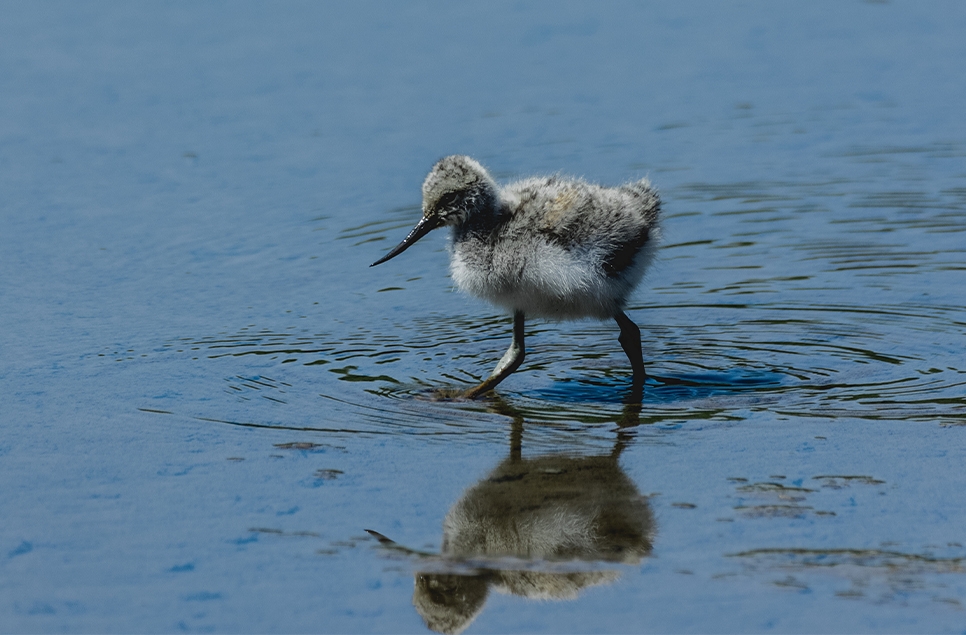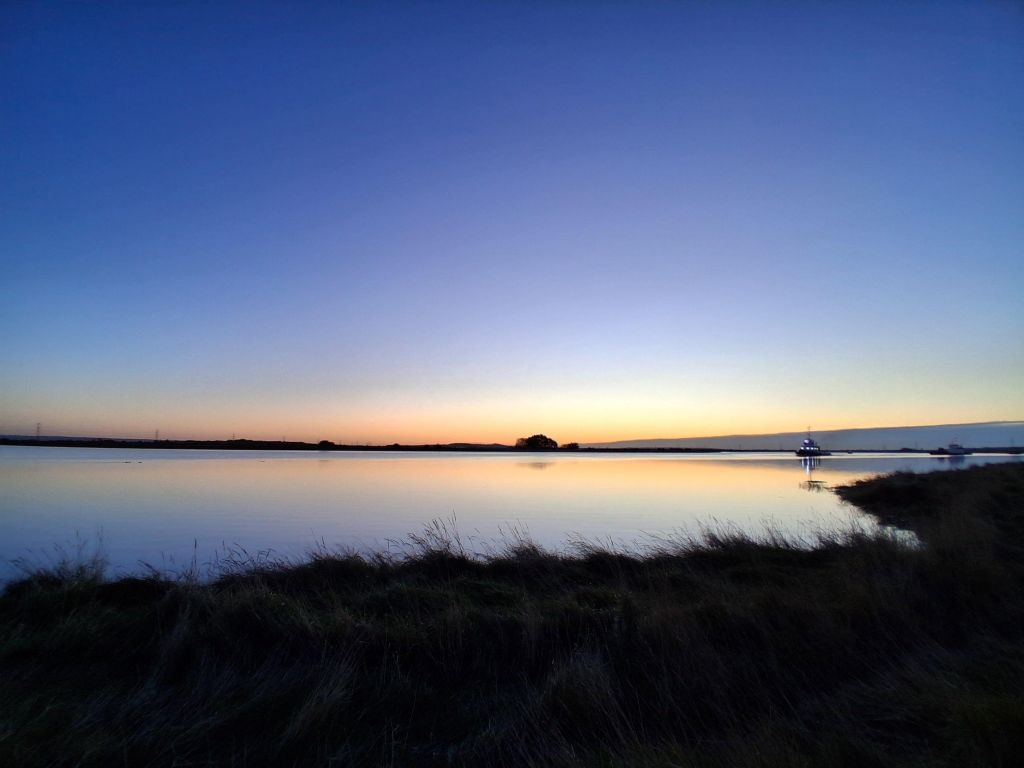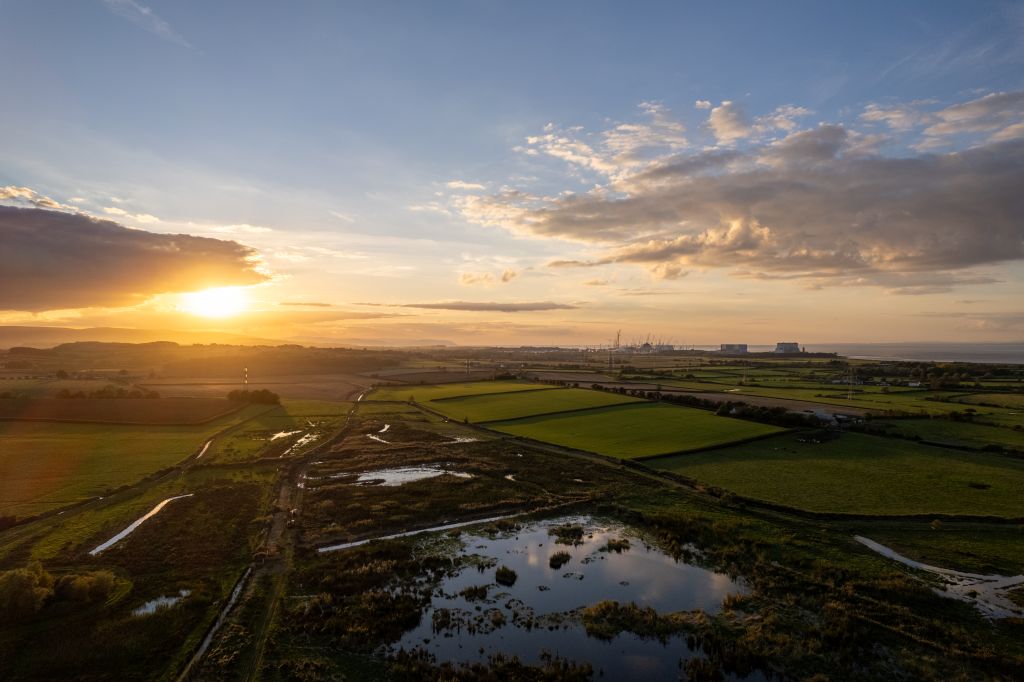Somerset nature reserves will be made Wetter for Waders with 800k funding boost
Hundreds of hectares of wetland habitat will be restored, or enhanced, across WWT Steart Marshes and Bridgwater Bay National Nature Reserve (NNR), thanks to more than £800,000 in funding from the government’s Species Survival Fund.

The funding awarded to WWT, the charity for wetlands and wildlife, will be used to boost local biodiversity, improving the condition across more than 370 hectares of coastal floodplain grazing marsh and freshwater habitats, which species like Avocets and great crested newts rely on.
As well as creating new saline lagoons, scrapes and ditches across both nature reserves, the project, ‘Wetter for waders’, will restore at least one ‘ghost pond’ previously lost on the land, on top of six others that will be improved.
A new boardwalk across the saltmarsh at WWT Steart Marshes will help visitors get closer to nature, and learn about the specialist wildlife of the saltmarsh ecosystem. Predator-proof fencing will help protect new areas to support vulnerable breeding waders, and ‘No Fence’ collars will enable cattle to graze areas across 290 hectares of saltmarsh, helping to naturally manage the vegetation.
On top of improvements to the landscape, the sites will host a series of willow and art workshops for the local community, producing huge wildlife sculptures and murals, and hold sessions for local landowners on how to create wetland features. Four new members of staff will deliver and champion the work done at WWT Steart Marshes and Bridgwater Bay NNR.
Alys Laver, Site Manager at WWT Steart Marshes and Bridgwater Bay said: “This generous funding will help us to provide a huge boost for Somerset’s wildlife, enhancing 370 hectares of habitat that is home to more than 500 species of plants and animals.
“Making the landscape wetter again will protect the internationally significant numbers of waders roosting within the estuary over winter and further support wider nature recovery plans across Somerset.
“These works will ultimately lead to a greater variety and abundance of wildlife across WWT Steart Marshes, Bridgwater Bay, and across the wider landscape.”
This project is funded by the Government's Species Survival Fund, developed by Defra and its Arm's-Length Bodies. It is being delivered by The National Lottery Heritage Fund in partnership with Natural England and the Environment Agency.
Eilish McGuinness, Chief Executive, The National Lottery Heritage Fund, said: ‘We are delighted to be working in partnership with Defra again to distribute funding for these projects, which will support nature recovery by helping to boost the quality and quantity of wildlife-rich habitats across England. This partnership will further our vision for heritage to be valued, cared for and sustained for everyone, now and in the future.’
Environment Minister, Rebecca Pow, said: “The funding awarded today as part our flagship Species Survival Fund will enable local authorities, landowners, farmers, and our protected landscapes organisations to restore nature at scale and provide valuable green jobs in the process.
“Only by creating bigger and better habitats for wildlife will we be able to halt the alarming decline in species loss. This fund will be a key plank in achieving our legally binding targets to halt species loss and protect 30% land for nature by 2030.”
The Species Survival Fund
The Species Survival Fund, a partnership between Defra and The National Lottery Heritage Fund, has seen grants of up to £3 million awarded across England for habitat creation and restoration projects to run over the next two years.
The Species Survival Fund will help halt and reverse the decline in species abundance by preserving vital habitats. The new funding is supporting projects that tackle habitat loss, safeguard our fragile ecosystems, and create and restore nature-rich landscapes full of wildlife-friendly habitats within precious chalk streams, wetlands, heathlands, grasslands and scrublands.
The fund will create and improve natural habitats, helping Defra to meet their target to protect 30% of land for nature by 2030 (known as 30by30).
The Species Survival Fund builds upon the success of similar initiatives like the Green Recovery Challenge Fund and will create the foundations for ongoing expansion of habitats to support our wildlife.
The full list of awards is here: Funding decisions | The National Lottery Heritage Fund
Image: An Avocet chick exploring shallow waters. Credit: Ian Henderson / WWT



